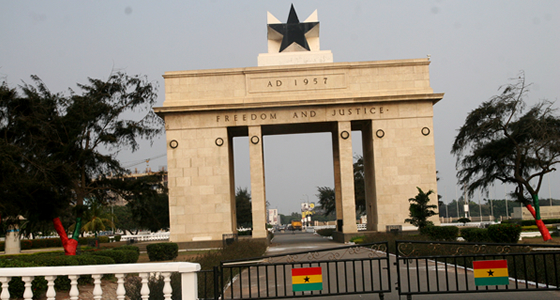 Foreign Missions in Ghana as well as some Pan-African groups have congratulated Ghana and Africa on the occasion of the Golden Jubilee celebration of African Union (AU) formerly known as the African Unity of African Unity (OAU).
Foreign Missions in Ghana as well as some Pan-African groups have congratulated Ghana and Africa on the occasion of the Golden Jubilee celebration of African Union (AU) formerly known as the African Unity of African Unity (OAU).
Ms Trudy Kernighan, Canadian High Commissioner to Ghana, read a solidarity message on behalf of the American Diplomatic Corps in Ghana, at the flag-raising ceremony held by the Ministry of Foreign Affairs and Regional Integration and the National Planning Committee for the celebration, held in Accra last Saturday.
She said the AU’s focus on governance, trade, role of private sector in economic development, reaping the benefits of Africa’s natural resources, were all important to furthering the socio-economic development of the continent.
Ms Kernighan said AU members states would take advantage of the celebration, and reflect on the progress and set backs of the continent.
She said “The world is watching as many African countries forge ahead with growth rates that are the envy of many. Suddenly, Africa is seen as a great market and a place where everyone wants to do business”.
Ms Kernighan said that Canada and other countries had being supporting efforts by African states to build institutions, leadership and local capacity to address regional and global security threats.
She cited the Kofi Annan International Peacekeeping Training Centre as an example of a facility supporting African military and police personnel to carry out integrated peacekeeping in Africa and around the world.
Ms Kernighan said: “it is both an exciting and challenging time for African member states. While newly found natural resources can provide opportunities for economic growth and development, it is imperative that states manage their exploitation judiciously, safely and with respect for the environment”.
She said the AU’s strategic plan 2014-17 was a first step in realising ambitions outlined in its vision 2063 with priorities aimed at increasing capacity and institutions and promoting social, economic, and human development.
Mr Vladimir Barbin, who spoke on behalf of the European Diplomatic corps, said the AU had become a striking example of triumph of ideas of progress, equality and democracy since its inception in 1963 and was one of the world’s most important and influential intergovernmental organisations.
He said the AU had formed proud traditions to promote democratic rule and good governance, and sending peace-keepers to countries in turmoil.
Mr Barbin asked African countries to exploit its enormous human and natural resources to be able to manage the many complex transitions ahead.
Mr Rafiq Abudalfa, Dean and ambassador of the State of Palestine, on behalf of the Middle East and Asian envoys, praised African countries for their development.
He quoted Osagyefo Dr. Kwame Nkrumah, who stated that “independence is only the prelude to a new and more involved struggle for the right to conduct our own economic and social affairs; to construct our society according to our aspirations, unhampered by crushing and humiliating neo-colonialist controls and interference”.
Mr Abudalfa asked the AU to consider itself as a tool for achieving accelerated development in Africa.
The Pan-African Writer Association (PAWA) called on African writers to restore confidence to African people through their writings.
Professor Atukwei Okai, Secretary General of PAWA, in a statement read on his behalf by Dr Camynta Baezie, General Secretary of the Ghana Association of Writers, said though Africa had done well in the last twenty years in the field of literature, winning a number of Nobel Literature and other prizes, a lot remained to be done.
He urged African leaders to exhibit clear political vision, a sense of direction and the courage to act in the interests of the long-beleaguered African people.
Prof. Okai said: “the African people are expecting the continent’s leaders to show strong commitment to economic and political integration”.
Mr Peter Kwasi Kodjoe, presenting a message on behalf of the All-Africa Students Union, said Africans “still have great distance to go and very little time to waste, although 2063 may seem far away”.
Source: GNA























